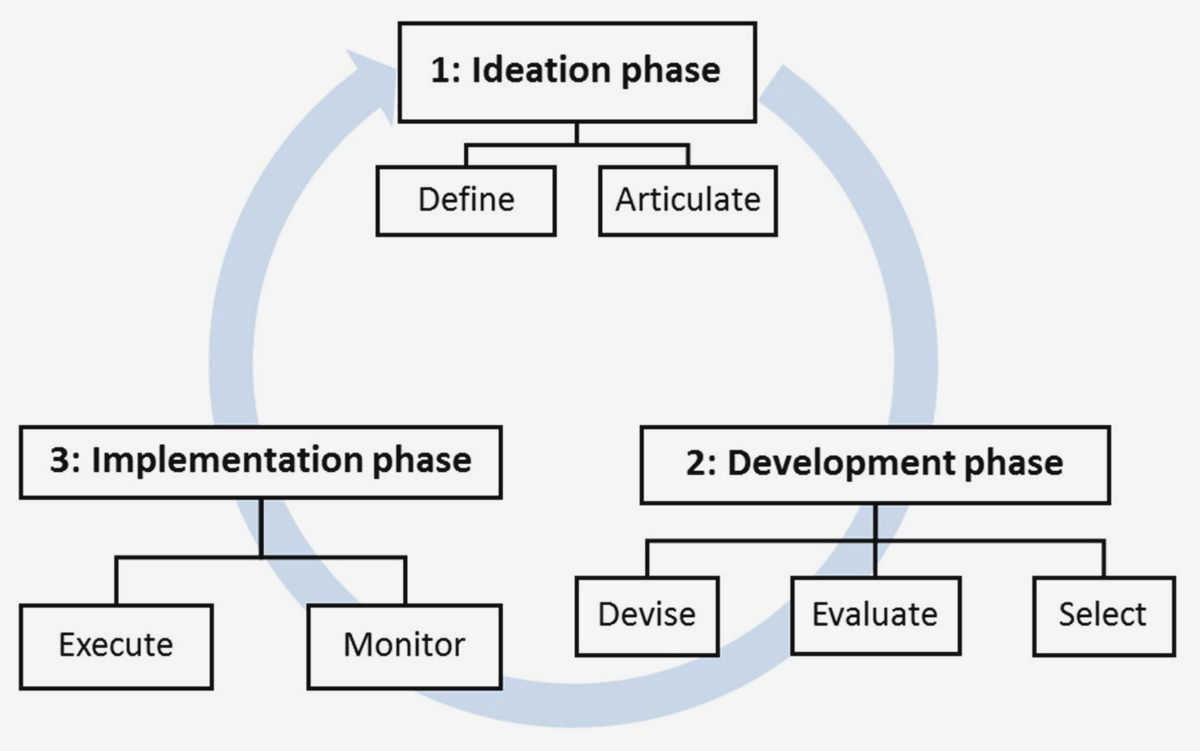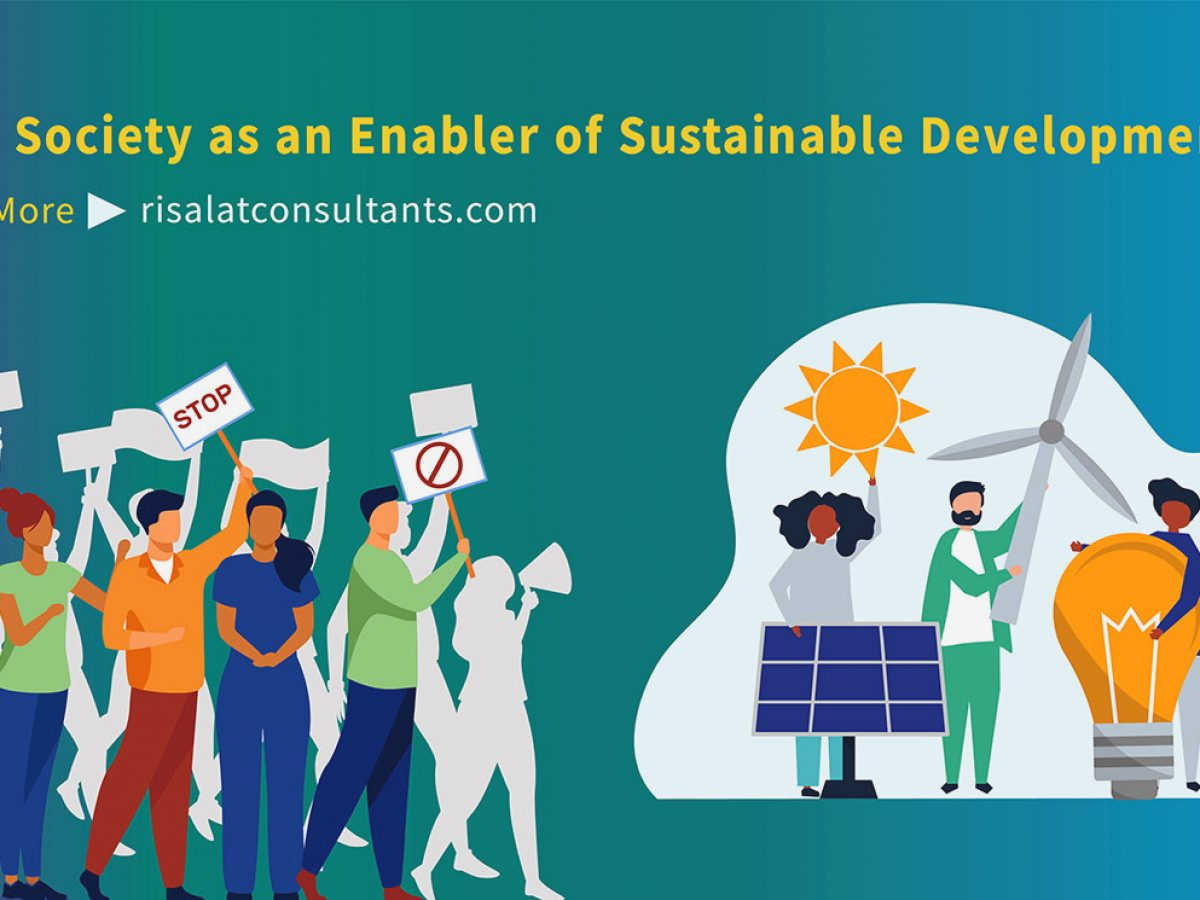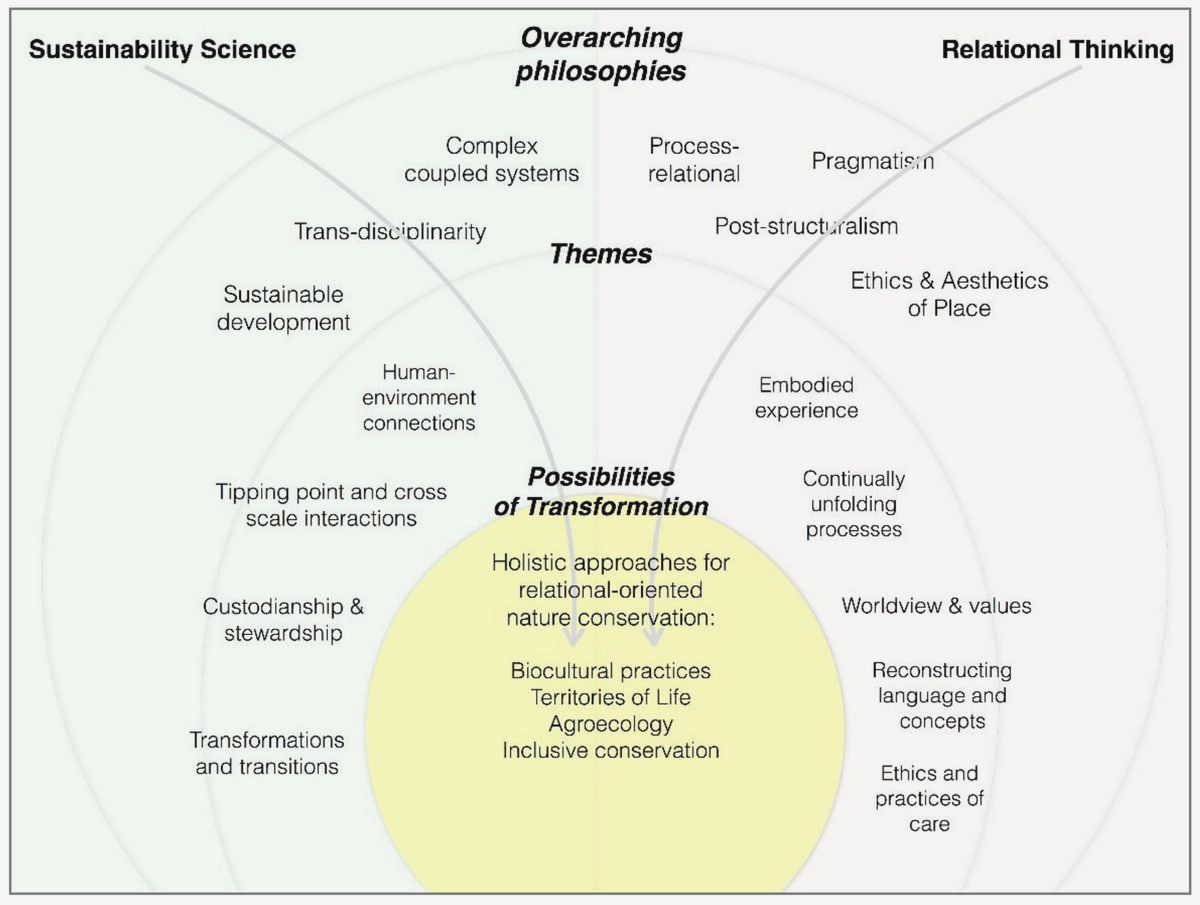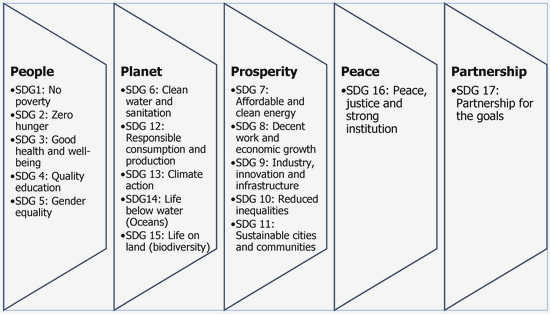As the world faces increasing environmental challenges, the need for sustainable development and conservation has become more crucial than ever. In order to address these issues effectively, it is essential to involve and engage civil society in the process. Civil society refers to the collective action and participation of individuals and non-governmental organizations in promoting and advocating for social, economic, and environmental well-being.
Civil society plays a crucial role in sustainable development and conservation by raising awareness, mobilizing resources, and advocating for policy change. NGOs and community-based organizations are often at the forefront of environmental movements, working to protect natural resources, promote sustainable practices, and ensure the accountability of governments and corporations. Their efforts contribute to the preservation of biodiversity, the reduction of greenhouse gas emissions, and the promotion of sustainable livelihoods.
One of the key strengths of civil society is its ability to mobilize public support and generate grassroots momentum for environmental causes. Through education and awareness campaigns, civil society organizations are able to reach a wide audience and inspire individuals to take action. By engaging citizens in the decision-making process and encouraging their involvement in sustainable initiatives, civil society helps to foster a sense of ownership and responsibility for the environment.
Furthermore, civil society acts as a watchdog, monitoring and holding accountable both governments and businesses for their environmental actions and policies. By advocating for stronger regulations and standards, civil society organizations push for more sustainable practices and ensure that the rights and interests of local communities are protected. Their independent research and documentation also play a crucial role in exposing environmental abuses and providing evidence for policy and legal reforms.
The Importance of Sustainable Development
As the world faces unprecedented challenges related to climate change, environmental degradation, and social inequality, sustainable development has become a crucial concept and goal for governments, organizations, and individuals around the globe. The concept of sustainable development recognizes the interdependence of economic growth, social development, and environmental protection, and emphasizes the need to meet the needs of the present generation without compromising the ability of future generations to meet their own needs.
Sustainable development is essential for the long-term survival and well-being of humanity. It offers a framework for planning and decision-making that takes into account the complex interactions between economic, social, and environmental systems. By promoting sustainable practices, sustainable development aims to ensure a balance between economic prosperity, social equity, and environmental stewardship.
One of the key aspects of sustainable development is the preservation and conservation of natural resources. This involves adopting sustainable practices in areas such as agriculture, forestry, energy production, and water management. By using resources efficiently, minimizing waste, and promoting the use of renewable energy sources, sustainable development helps to preserve the natural environment for future generations.
Another important aspect of sustainable development is the promotion of social equity and inclusivity. Sustainable development aims to create a society where everyone has access to basic needs such as clean water, sanitation, healthcare, education, and employment opportunities. It seeks to reduce inequality and ensure that development benefits all members of society, particularly the marginalized and vulnerable populations.
Furthermore, sustainable development recognizes the importance of local communities and their involvement in decision-making processes. It encourages the participation of civil society, including non-governmental organizations, community groups, and individuals, in shaping policies and initiatives that affect their lives and the environment. This participatory approach helps to foster ownership, accountability, and democratic governance, leading to more sustainable and inclusive development.
In conclusion, sustainable development plays a crucial role in addressing the pressing global challenges we face today. By promoting a holistic approach that considers the economic, social, and environmental dimensions of development, sustainable development offers a path towards a more equitable, resilient, and sustainable future for all.
The Role of Civil Society in Sustainable Development
Civil society plays a crucial role in driving sustainable development initiatives. As a collective force, civil society organizations (CSOs) have the ability to drive positive change towards a more sustainable future. Their involvement is vital in implementing and monitoring sustainable development goals, influencing policy decisions, and holding governments and other stakeholders accountable for their actions.
Civil society acts as a key advocate and watchdog. CSOs serve as the voice of the people, representing the interests of various communities and marginalized groups. They play a vital role in raising awareness and advocating for sustainable development policies and practices. Through research, education, and grassroots organizing, civil society mobilizes communities and fosters a sense of ownership, ensuring that sustainability remains at the forefront of the public agenda.
Civil society enhances participatory decision-making and governance. CSOs provide platforms for citizens to engage in decision-making processes, ensuring that their voices are heard and their perspectives are taken into account. By promoting inclusivity and diversity, civil society organizations contribute to more equitable and sustainable policies and practices. They also work to strengthen democratic institutions and promote transparency, accountability, and good governance, which are essential for achieving sustainable development goals.
Civil society fosters collaboration and partnerships. CSOs play a crucial role in bridging gaps between different sectors and stakeholders. They facilitate dialogue, build networks, and encourage collaboration among governments, businesses, academia, and local communities. By bringing together diverse perspectives and expertise, civil society organizations can generate innovative solutions, promote knowledge sharing, and facilitate the implementation of sustainable development initiatives at various levels.
Civil society holds stakeholders accountable. Through monitoring, advocacy, and social engagement, CSOs hold governments, businesses, and other stakeholders accountable for their actions and commitments towards sustainable development. With their independent voices and expertise, civil society organizations can highlight shortcomings, provide recommendations for improvement, and put pressure on decision-makers to prioritize sustainability in their policies and practices.
In summary, civil society plays a multifaceted and indispensable role in driving sustainable development. Through their advocacy, participation, collaboration, and accountability efforts, CSOs contribute to the achievement of sustainable development goals and the creation of a more equitable and sustainable future for all.
The Need for Conservation Efforts
Sustainable development and conservation are crucial for the long-term survival of our planet and the well-being of future generations. As the global population continues to grow, the demand for natural resources is increasing rapidly, leading to overexploitation and degradation of ecosystems. It is evident that conservation efforts are essential to preserve biodiversity, protect endangered species, and restore degraded habitats.

Conservation efforts play a crucial role in maintaining the delicate balance of ecosystems and ensuring the sustainability of natural resources. By protecting and managing natural areas, we can maintain biodiversity and prevent the loss of valuable species. This includes the establishment and management of protected areas, the implementation of sustainable forestry practices, and the preservation of critical habitats such as wetlands and coral reefs.
Furthermore, conservation efforts are vital for mitigating the impacts of climate change. By conserving forests and promoting sustainable agriculture practices, we can reduce greenhouse gas emissions and mitigate the effects of global warming. Conservation also plays a role in adapting to climate change by maintaining the resilience of ecosystems and supporting communities that are vulnerable to the impacts of climate change.
Conservation efforts are not only essential for environmental sustainability but also for economic and social well-being. Protected areas and well-managed natural resources can provide economic benefits through tourism, recreation, and sustainable use of natural resources. Additionally, conservation efforts can help in poverty alleviation by providing livelihood opportunities for local communities through sustainable resource management.
In conclusion, the need for conservation efforts is evident in ensuring the long-term survival of our planet, protecting biodiversity, mitigating climate change, and promoting sustainable development. It is crucial for governments, civil society organizations, and individuals to work together to implement effective conservation strategies and practices, while also raising awareness and promoting a culture of sustainability.
The Role of Civil Society in Conservation
Civil society plays a crucial role in conservation efforts around the world. With their grassroots movements, advocacy campaigns, and community engagement, civil society organizations contribute significantly to the protection and preservation of our natural resources.

One of the key roles that civil society plays in conservation is raising awareness about environmental issues. Through education programs, public campaigns, and media outreach, these organizations inform and engage individuals, communities, and policymakers on the importance of conservation and sustainable development.
Civil society also plays a vital role in monitoring and holding governments and corporations accountable for their environmental actions. Through research, data collection, and independent assessments, these organizations ensure that laws and regulations are followed, environmental impacts are properly assessed, and that the rights of local communities and Indigenous peoples are respected.
Another important aspect of civil society’s role in conservation is the promotion of sustainable practices and alternative solutions. By advocating for renewable energy, promoting organic farming, supporting local and traditional knowledge, civil society organizations help create a more sustainable and environmentally friendly future.
Civil society organizations also play a crucial role in protecting biodiversity and natural habitats. Through habitat restoration projects, wildlife conservation initiatives, and the establishment of protected areas, these organizations help safeguard the rich diversity of life on our planet. They work closely with local communities, governments, and other stakeholders to ensure the long-term preservation of ecosystems and the species that depend on them.
In conclusion, civil society plays a multifaceted role in conservation, encompassing awareness-raising, advocacy, monitoring, and protection of biodiversity. Their efforts are essential in achieving sustainable development, preserving our natural resources, and ensuring a more harmonious relationship between humans and the environment.
Environmental Education and Awareness
Environmental education plays a crucial role in creating awareness and understanding of global environmental issues, as well as promoting sustainable development and conservation measures. It aims to empower individuals and communities to take responsibility for their actions and contribute to the protection and preservation of the environment.
Importance of Environmental Education:
- Enhances knowledge and understanding of ecological systems and the interdependence of humans and the environment.
- Raises awareness about the impact of human activities on the environment and the importance of conservation.
- Encourages individuals to adopt sustainable practices in their daily lives, such as reducing waste and energy consumption.
- Promotes the development of critical thinking and problem-solving skills related to environmental issues.

Tools and Approaches in Environmental Education:
- Experiential learning: This approach involves hands-on activities and field trips to natural habitats, allowing individuals to learn through direct experiences.
- Technology: Utilizing digital tools, multimedia, and interactive online platforms can make the learning process engaging and accessible.
- Collaboration: Working in groups or partnerships fosters collaboration, creativity, and shared responsibility in finding solutions to environmental challenges.
Benefits of Environmental Education:
- Empowerment: Environmental education empowers individuals to make informed decisions and take action to address environmental problems.
- Social change: It has the potential to inspire collective action and create a culture of sustainability within communities.
- Future-oriented: By nurturing environmental literacy and encouraging sustainable behaviors, environmental education helps build a more sustainable future.
- Biodiversity conservation: Increased awareness and understanding of biodiversity can contribute to its protection and conservation efforts.
Advocacy and Policy Influence
Advocacy plays a crucial role in advancing sustainable development and conservation efforts by civil society organizations. Through strategic communication and influencing key decision-makers, civil society groups can push for policy changes and reforms that promote environmental sustainability, social justice, and economic development.
One of the key strategies used by civil society organizations in advocacy is the mobilization of public support. By raising awareness and mobilizing individuals and communities, these groups are able to build public pressure and create a sense of urgency around issues related to sustainable development and conservation. This can be done through various means, such as public campaigns, grassroots organizing, and social media engagement.
In addition to mobilizing public support, civil society organizations also engage in policy research and analysis. By conducting rigorous research and providing evidence-based recommendations, these groups are able to influence policy development and implementation. They provide valuable insights and expertise to policymakers, helping to shape policies and practices that are in line with the principles of sustainable development and conservation.
Furthermore, civil society organizations often engage in advocacy at the international level. They participate in global forums, such as the United Nations Framework Convention on Climate Change (UNFCCC), to influence international agreements and negotiations. Through partnerships, collaboration, and networking, these groups amplify their voices and increase their chances of influencing decision-making processes at the global level.
Overall, advocacy and policy influence are crucial components of civil society’s role in promoting sustainable development and conservation. Through strategic communication, mobilization of public support, policy research and analysis, and international engagement, civil society organizations are able to create systemic change and contribute to a more sustainable and just future.
Community Engagement and Empowerment
Community engagement and empowerment play a crucial role in sustainable development and conservation efforts. In order to achieve long-term sustainability and conservation goals, it is essential to involve local communities in decision-making processes and empower them to take an active role in environmental initiatives.
Engaging community members in the process of sustainable development fosters a sense of ownership and responsibility. This can be achieved through various means, such as organizing community meetings and consultations where individuals can voice their opinions and concerns, or providing platforms for collaboration and dialogue between community members and decision-makers.
Empowering
Empowerment is a key component of community engagement and is essential for creating lasting change. By empowering communities, individuals gain the knowledge, skills, and resources needed to actively participate in sustainable development and conservation efforts.
There are several ways to empower communities, such as providing education and training programs on sustainable practices, supporting local initiatives and businesses that promote environmental conservation, and ensuring equal access to opportunities and resources.
An empowered community is more likely to take ownership of conservation initiatives, as they are equipped with the necessary tools to make informed decisions and contribute to sustainable development efforts.
Overall, community engagement and empowerment are crucial for achieving sustainable development and conservation goals. By involving local communities in decision-making processes and empowering them to take an active role, we can create a more inclusive and effective approach to environmental initiatives.
Citizen Science and Research
Citizen science refers to the involvement of ordinary citizens in scientific research and data collection. It allows individuals from various backgrounds and levels of expertise to contribute to the gathering of scientific information, thus expanding the knowledge and understanding of the natural world.
Through citizen science, people can actively participate in research initiatives related to sustainable development and conservation. They can assist in monitoring local ecosystems, collecting and analyzing data, and identifying patterns and trends that provide valuable insights into environmental issues and biodiversity. This bottom-up approach empowers individuals and communities to become active participants in scientific research.
Community engagement is a key aspect of citizen science. By involving local communities in research projects, scientists and conservation organizations can tap into the collective knowledge and experience of the people who are intimately familiar with the ecosystems they inhabit. This collaboration fosters a sense of ownership and responsibility towards environmental issues, leading to more sustainable practices and conservation efforts.
Thanks to advancements in technology and the availability of online platforms, citizen science has become more accessible and widespread than ever before. Through smartphone apps and web-based platforms, individuals can easily contribute to research projects from anywhere in the world. This democratization of science allows for a greater diversity of contributors and a more comprehensive understanding of environmental challenges.
Citizen science also encourages public awareness and education. By actively engaging in scientific research, individuals gain firsthand experience of the natural world and develop a deeper appreciation for its complexity and interconnectedness. This hands-on approach to learning fosters environmental literacy and encourages a sense of stewardship towards the environment.
In conclusion, citizen science plays a crucial role in advancing sustainable development and conservation efforts. By involving citizens in scientific research and data collection, it expands our understanding of the natural world and empowers individuals to take an active role in environmental stewardship. The accessibility and community engagement aspect of citizen science make it a valuable tool for promoting sustainable practices and fostering public awareness about environmental issues.
Funding and Resource Mobilization
Civil society plays a crucial role in sustainable development and conservation efforts, but without adequate funding and resource mobilization, their impact may be limited. Funding is essential to support the initiatives and projects undertaken by civil society organizations (CSOs) working in the field of sustainability and conservation. Without sufficient financial resources, CSOs may struggle to carry out their work effectively and achieve their goals.
To mobilize resources, CSOs often rely on a combination of methods, including grants, donations, corporate partnerships, and fundraising activities. Grant funding from governments, foundations, and international organizations can provide significant financial support for specific projects and programs. CSOs also seek donations from individuals and businesses who share their mission and values. Corporate partnerships can offer not only financial support but also access to expertise and networks.
Fundraising activities are another important avenue for resource mobilization. CSOs organize events, campaigns, and appeals to generate funds from the public and attract individual donors. These activities can range from traditional methods such as charity runs or concerts to innovative approaches like crowdfunding platforms and online fundraising campaigns.
In addition to financial resources, CSOs also rely on the mobilization of other resources such as human capital, knowledge, and technology. They may seek partnerships with academic institutions or technical experts to access specialized knowledge and skills. Collaboration with other CSOs and community organizations can also facilitate the sharing of resources and expertise.
Effective funding and resource mobilization strategies are essential for civil society to make a sustainable and lasting impact in the field of sustainable development and conservation. By securing the necessary resources, CSOs can continue their vital work in protecting the environment, promoting social justice, and advocating for a more equitable and sustainable future.
Collaboration and Partnerships
Collaboration and partnerships play a crucial role in sustainable development and conservation efforts. They enable different stakeholders to come together, share knowledge and resources, and work towards common goals. Civil society organizations, government bodies, businesses, and local communities can all contribute to the process.
Civil society organizations: These groups play a key role in mobilizing and organizing efforts towards sustainable development and conservation. They can raise awareness, advocate for policy changes, and implement projects on the ground. Collaboration between different civil society organizations can amplify their impact and create a united front for change.
Government bodies: Governments have an important role in setting policies, regulations, and frameworks for sustainable development and conservation. Collaboration between governments at different levels (local, regional, national) can lead to effective coordination and implementation of initiatives. It is also important for governments to collaborate with civil society organizations and other stakeholders to leverage their expertise and ensure the inclusivity of decision-making processes.
Businesses: Businesses have a responsibility to integrate sustainable practices into their operations. Collaboration between businesses and other stakeholders can result in innovative solutions and promote the adoption of sustainable technologies. Public-private partnerships, where businesses collaborate with governments and civil society organizations, can also help mobilize resources and ensure scalable projects.
Local communities: Collaboration with local communities is crucial for the success of sustainable development and conservation initiatives. Their knowledge of the local ecosystem, traditions, and cultural practices can greatly contribute to the design and implementation of projects. Involving local communities in decision-making processes and creating partnerships based on trust and mutual respect can lead to long-term benefits for both the environment and the community.
In conclusion, collaboration and partnerships are essential for sustainable development and conservation. By bringing together different stakeholders, these collaborations can leverage collective knowledge, resources, and expertise to achieve common goals. It is through collaboration that we can create a more sustainable and resilient future for all.






